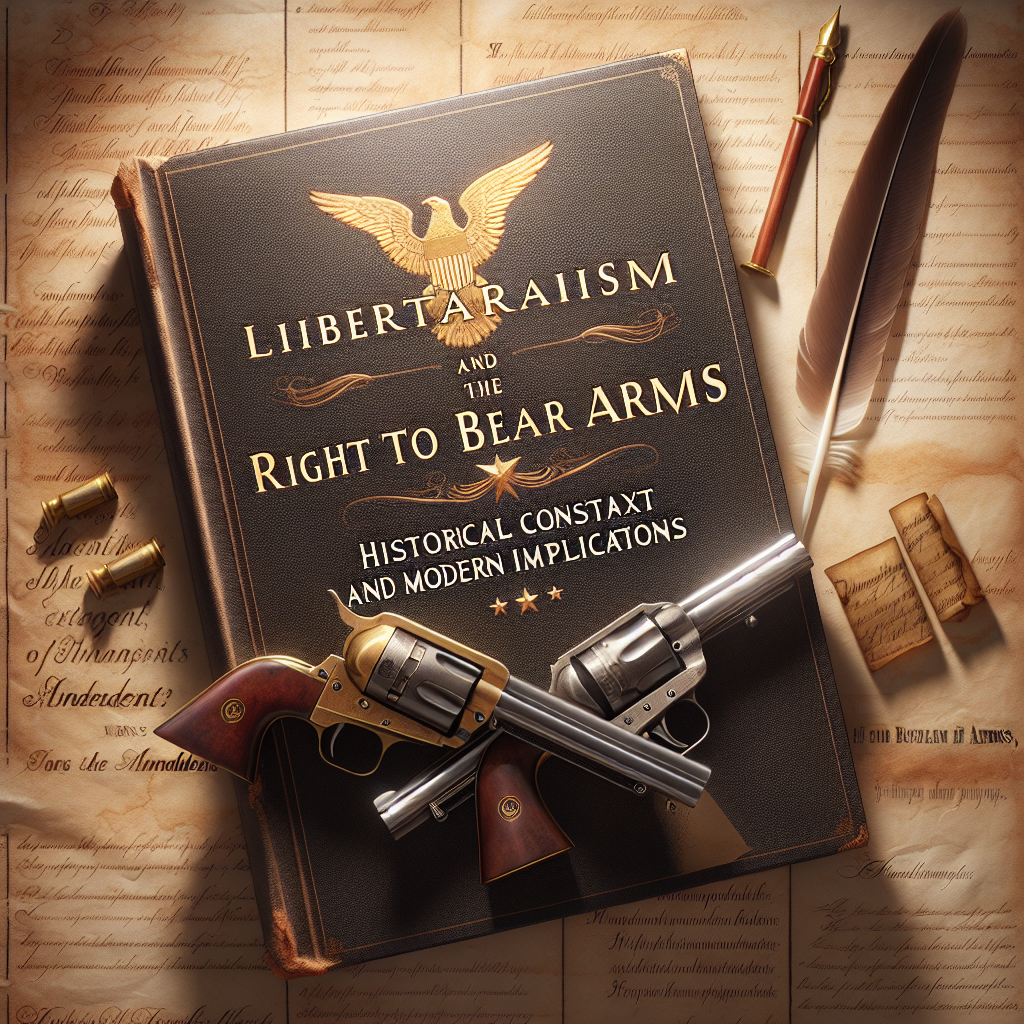Libertarianism and the Right to Bear Arms: Historical Context and Modern Implications
The intersection of libertarianism and the right to bear arms is a compelling subject that echoes throughout American history. With roots deeply embedded in the principles of personal freedom and limited government, this relationship has significant implications in today’s socio-political landscape. This article explores the historical context of the right to bear arms through a libertarian lens and discusses its relevance in modern society.
Understanding Libertarianism: Principles and Beliefs
Libertarianism is a political philosophy that emphasizes individual liberty, personal responsibility, and minimal government intervention in the lives of citizens. Central to the libertarian ideology is the belief that individuals possess the right to make choices about their own lives, as long as those choices do not infringe on the rights of others. This principle of self-governance extends to various aspects of life, including economic decisions, personal conduct, and the fundamental right to self-defense.
The Right to Bear Arms: Constitutional Foundations
The right to bear arms is often traced back to the Second Amendment of the United States Constitution, ratified in 1791. The amendment states, “A well regulated Militia, being necessary to the security of a free State, the right of the people to keep and bear Arms, shall not be infringed.” Libertarians assert that this amendment reinforces the idea of individual rights and serves as a safeguard against government overreach.
Historically, the framers of the Constitution acknowledged the importance of an armed citizenry. They believed that a population capable of defending itself was essential to preserving liberty and preventing tyranny. The philosophical underpinnings of libertarianism strongly support this view, advocating that the right to bear arms is a foundational element of a free society.
Historical Context: Arms and Liberty
Throughout American history, the right to bear arms has been associated with key movements advocating personal freedoms. The Revolutionary War, for example, was fought in part to liberate colonists from British oppression, emphasizing the crucial role of armed citizens. In this context, firearms were not merely tools of war; they symbolized the fight for autonomy and self-determination.
As the United States expanded westward, the right to bear arms took on new significance. Lawless territories and the absence of centralized law enforcement made firearms crucial for individuals seeking protection and security. The libertarian view posits that individual self-defense is a natural right and that the government should not infringe upon this capability.
Modern Implications: The Ongoing Debate
In contemporary society, the right to bear arms remains a hotly debated issue, particularly in light of increasing gun violence and mass shootings. Libertarians argue that responsible gun ownership should not be curtailed in response to the actions of a few. They contend that laws restricting access to firearms often infringe upon the rights of law-abiding citizens and can lead to unintended consequences, such as increased vulnerability to crime.
Moreover, the libertarian perspective emphasizes personal responsibility. Proponents advocate for education and training in gun safety as opposed to restrictive regulations that could undermine individuals’ rights. This approach aligns with the broader libertarian ethos of empowering individuals to make informed choices regarding their lives.
Gun Control vs. Individual Rights: A Libertarian Perspective
The clash between gun control advocates and libertarians often stems from differing views on the role of government. Gun control proponents argue for stricter regulations to prevent firearms from falling into the wrong hands. However, libertarians caution against such measures, which they believe can pave the way for a government that encroaches on personal freedoms.
Libertarians often suggest that any violation of the right to bear arms sets a concerning precedent, leading to further restrictions on individual rights. They argue that a true free society should prioritize personal choice over restrictive governance, allowing individuals to protect themselves and their families.
Conclusion: The Future of Libertarianism and the Right to Bear Arms
The relationship between libertarianism and the right to bear arms is complex, rooted in a historical context that champions individual liberty and self-defense. As society grapples with modern challenges surrounding gun violence and personal safety, the principles of libertarianism provide a framework for understanding the importance of this right.
In considering the future, it is crucial to foster a balanced dialogue that respects individual rights while addressing public safety concerns. The principles of libertarianism regarding the right to bear arms will continue to play a vital role in shaping American policy and discourse, ensuring that the values of personal freedom, individual responsibility, and limited government remain central to the ongoing conversation.
By understanding the historical context and modern implications of libertarianism in relation to the right to bear arms, we can better navigate the complexities of this enduring issue as it evolves in the ever-changing landscape of American society.
Share this content:










Post Comment